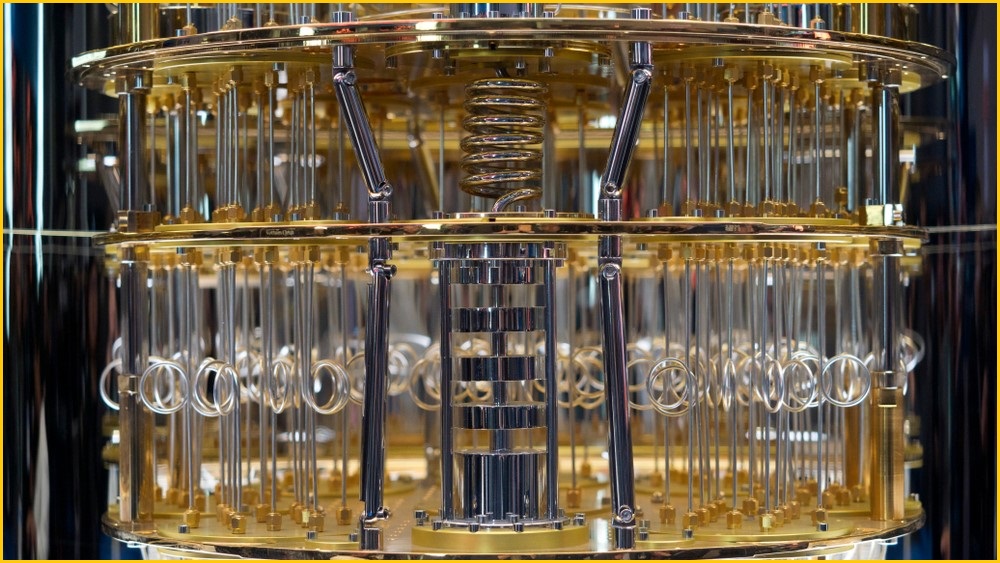The federal and Queensland governments will invest nearly $1 billion in US-based tech firm PsiQuantum, with the company to base its attempt to build the world’s first utility-scale quantum computer in Brisbane.
The $940 million in funding, comprising equity, grants and loans, will be split evenly between the Commonwealth and Queensland, and will see PsiQuantum establish its Asia-Pacific headquarters in Brisbane.
It comes after six months of speculation that the federal government was looking to purchase a quantum computer from the US company, first revealed by Information Age in November.
The Industry department issued an expression of interest in August last year to “explore the maturity of the market around quantum computing”, with more than 20 companies approached as part of this “exploration process”.
PsiQuantum, which was founded by two Australians but is based in California, will now look to build a fault-tolerant quantum computer at the Brisbane Airport by 2027.
Such a device would be “able to solve commercially useful problems across industries built upon chemistry, mathes and physics” and would transform the critical industries that “will propel the global economy for decades”.
Prime Minister Anthony Albanese said the $470 million in funding from the federal government is part of its Future Made in Australia plan.
“It takes great partnerships to build new industries,” Albanese said.
“We need to make bold investments today if we want to see a future made in Australia.
“This investment shows we are serious about building a strong quantum ecosystem here in Australia.”
PsiQuantum focuses on fusion-based architecture through a photonics-approach which encodes qubits into particles of light and uses advanced infrastructure in the semiconductor manufacturing industry to fabricate and test millions of photonics devices.
“A utility-scale quantum computer represents an opportunity to construct a new, practical foundation of computational infrastructure and in so doing ignite the next industrial revolution,” PsiQuantum CEO Professor Jeremy O’Brien said.
“This platform will help solve today’s impossible problems and will serve as a tool to design the solutions we so desperately need to safeguard our future.
“We’re thrilled to partner with the Australian and Queensland governments as our team at PsiQuantum takes a massive step forward in our mission to help deliver on the promise of quantum computing.”
Speaking on ABC RN Breakfast on Tuesday, Minister for Industry Ed Husic said the funding will be released in batches based on performance targets.
“What it will mean longer term, not just from the jobs that are instantly created…is what it does to the whole quantum ecosystem in this country, what it’ll enable broader Australian industry to do,” Husic said.
“And the other big thing out of this is we are sending a signal to the rest of the world that we want our nation to be a centre for quantum growth, a frontier technology that will be important for the global economy as well.”
Quantum Australia established
Last week the Albanese government announced that the University of Sydney had been selected to lead the operation of Quantum Australia, its $18.4 million national centre aiming to grow the local quantum industry.
A consortium of research institutions and local quantum companies, led by the University of Sydney won the tender to run the Australian Centre for Quantum Growth, which will be known as Quantum Australia.
“Our stewardship of this new centre is in recognition of our commitment to research excellence, collaboration and translation,” Deputy Vice-Chancellor (Research) Professor Emma Johnston said.
“Quantum technologies of the future will lift our capacity to tackle major global challenges, and we want Australia to remain at the forefront of this transformative work.”
The centre was a key part of the federal government’s National Quantum Strategy, unveiled early last year.
Quantum Australia will be tasked with delivering three programs: Quantum Ecosystem Development, a Translation Accelerator, and the Entrepreneurship Support programme.
The Quantum Ecosystem Development program will foster a “deeply connected quantum stakeholder landscape with improved understanding of the potential of quantum technologies”, while the Translation Accelerator programme will look to unlock new use cases for quantum technologies, boost industry-academic research partnership and help to grow the quantum workforce.
The Entrepreneurship Support facet of the centre will attract quantum entrepreneurs from around the country and the world, to “support them on their journey from experts to founders”.
The $18.4 million in Commonwealth funding across four years will cover 75 per cent of the total costs of Quantum Australia, with the University of Sydney and its consortium partners to stump up the rest.
A quantum future
Husic recently extolled the potential of the Australian quantum sector, saying in a speech in February that it is the “future of made in Australia”.
The Minister said he wants more quantum research commercialisation in Australia.
The Albanese government unveiled the National Quantum Strategy in May last year, with an aim of cementing Australia’s position as a world leader in quantum and the creation of nearly 20,000 jobs by 2045.
This strategy will serve as a “north star for decision-making not just by us but by private and public capital”, Husic said.










